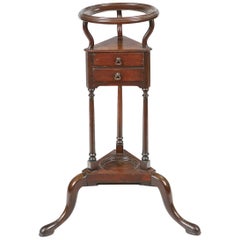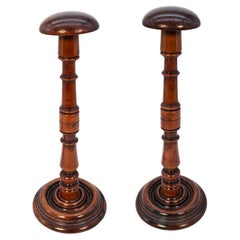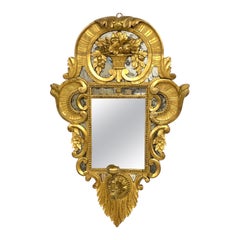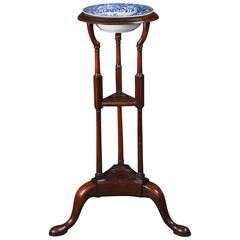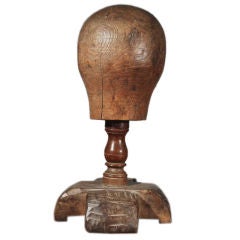18th Century Wig Stand
Antique 18th Century Irish George III Magazine Racks and Stands
Mahogany
Antique Early 18th Century British George II Hat Racks and Stands
Yew
Antique 18th Century French Louis XV Wall Mirrors
Mercury Glass, Mirror, Giltwood
Recent Sales
Antique Late 18th Century British Georgian Night Stands
Mahogany
Antique 18th Century and Earlier French Collectibles and Curiosities
Oak
Antique 18th Century and Earlier English More Furniture and Collectibles
Wood
Antique 18th Century and Earlier French Collectibles and Curiosities
Walnut
Antique Late 18th Century French Louis XVI Hat Racks and Stands
Walnut
Antique Late 18th Century Hat Racks and Stands
Antique Late 18th Century Hat Racks and Stands
Mahogany
Antique 18th Century and Earlier French Louis XV Sculptures
Walnut
Antique 18th Century and Earlier British George III Side Tables
Oak
People Also Browsed
Early 20th Century German Art Nouveau Decorative Boxes
Brass
Antique Late 18th Century Danish Folk Art Shelves
Wood
Antique Mid-19th Century English Shelves
Brass
Antique 19th Century English Georgian Porcelain
Porcelain
Early 20th Century Japanese Edo Sculptures and Carvings
Wood
Antique Late 19th Century English Regency Serving Pieces
Silver Plate
20th Century English Folk Art Nautical Objects
Glass
Antique Mid-19th Century English Folk Art Nautical Objects
Other
Early 20th Century French Art Deco Tobacco Accessories
Leather
Mid-20th Century Spanish Hollywood Regency Sunburst Mirrors
Gold Leaf
Vintage 1970s German Hollywood Regency Chandeliers and Pendants
Crystal, Brass
Antique 19th Century British Gothic Revival Coat Racks and Stands
Antique 1820s Irish Regency Fireplaces and Mantels
Carrara Marble
Antique Mid-18th Century Chinese Chinese Export Platters and Serveware
Porcelain
Antique 18th Century Demi-lune Tables
Mahogany
Antique Late 19th Century Scottish Victorian Collectible Jewelry
Agate, Silver
18th Century Wig Stand For Sale on 1stDibs
How Much is a 18th Century Wig Stand?
- 1stDibs ExpertNovember 13, 2024To identify 18th-century furniture, you can research your piece in the context of the prevailing styles of the period or consult a certified appraiser or experienced antique dealer. To identify your item on your own, look over it for maker's marks, such as carvings, stamps, brands and labels. Researching the marking can help you determine the maker of your piece, and from there, you can search further to learn more about your particular item. Without a maker's mark, the best approach is to consider the characteristics of the dominant furniture styles during the 18th century. In England, these included William and Mary, Queen Anne, Georgian, Chippendale, Hepplewhite and Sheraton. Some French furniture styles of the 1700s include Louis XV, Louis XVI and Régence. Find a diverse assortment of 18th-century furniture on 1stDibs.
- 1stDibs ExpertApril 5, 2022Yes, wedding rings have a long history, stretching back to ancient Egypt. The first diamond engagement ring was created in 1477 by Archduke Maximillian of Austria. Browse a wide array of vintage and contemporary wedding rings on 1stDibs.
- 1stDibs ExpertApril 5, 2022In the 18th century, art changed in style from Baroque to Rococo and Neoclassicism. Art became more ornamented and idealized during the Rococo period and then shifted toward a style that emulated the artwork of ancient Greece and Rome near the end of the century. You’ll find a variety of fine art on 1stDibs.
- 1stDibs ExpertApril 5, 2022One way to check if your brass candlesticks are from the 18th century is to look for the two seams running lengthwise on either side. This is from when the candlestick was molded in two halves and then soldered together. You’ll find a variety of candlesticks of all shapes and sizes from some of the top sellers on 1stDibs.
- 1stDibs ExpertJanuary 10, 2025The individuals considered the Big Three of 18th-century cartoons are William Hogarth, James Gillray and George Cruikshank. Although the 18th century saw a widespread increase in illustrations in newspapers, these three illustrators were particularly well-known for their work. Hogarth's work was extremely diverse, ranging from serious, realistic paintings and portraits to satirical and moralistic illustrations filled with symbolism. A British caricaturist, Gillray is remembered today for his artworks representing political and social satires, like his political cartoons against George III of England. Despite being a prolific caricaturist, Cruikshank is now most famous for illustrating the works of Charles Dickens. On 1stDibs, find a wide variety of illustrations.
- 1stDibs ExpertApril 5, 2022At the end of the 17th century, Europe went into a frenzy over porcelain. Asian porcelain was highly sought after, and spurred the foundation of the Meissen factory in France, where hard porcelain went on to be made. You’ll find a large collection of porcelain pieces from many of the world’s top sellers on 1stDibs.
Read More
Dickens Fan on Your List? This First Edition of ‘A Christmas Carol’ Is a Treasure
Produced in 1843, the well-preserved volume is evidence of the author's exacting specifications.
Patchwork Quilts Are the Latest Nostalgic Design Trend
New or old, the coverlets add old-time charm to any space.
Medal-Worthy Memorabilia from Epic Past Olympic Games
Get into the games! These items celebrate the events, athletes, host countries and sporting spirit.
Ahoy! You’ve Never Seen a Collection of Sailor Art and Kitsch Quite Like This
French trendsetter and serial collector Daniel Rozensztroch tells us about his obsession with objects related to seafaring men.
39 Incredible Swimming Pools
It's hard to resist the allure of a beautiful pool. So, go ahead and daydream about whiling away your summer in paradise.
Pamela Shamshiri Shares the Secrets behind Her First-Ever Book and Its Effortlessly Cool Interiors
The sought-after designer worked with the team at Hoffman Creative to produce a monograph that beautifully showcases some of Studio Shamshiri's most inspiring projects.
Moroccan Artworks and Objects Take Center Stage in an Extraordinary Villa in Tangier
Italian writer and collector Umberto Pasti opens the doors to his remarkable cave of wonders in North Africa.
Montecito Has Drawn Royalty and Celebrities, and These Homes Are Proof of Its Allure
Hollywood A-listers, ex-pat aristocrats and art collectors and style setters of all stripes appreciate the allure of the coastal California hamlet — much on our minds after recent winter floods.
